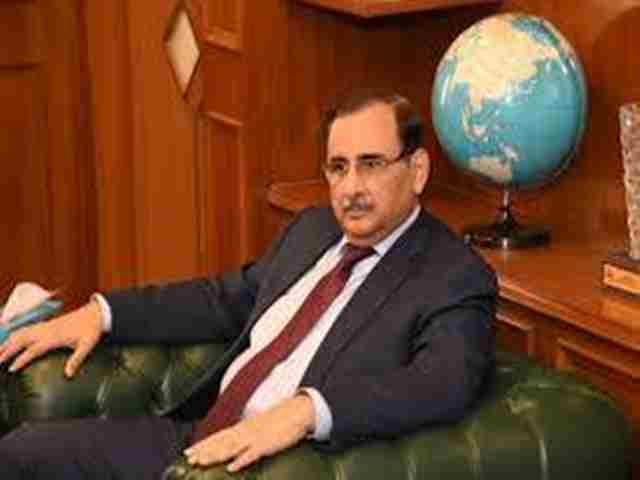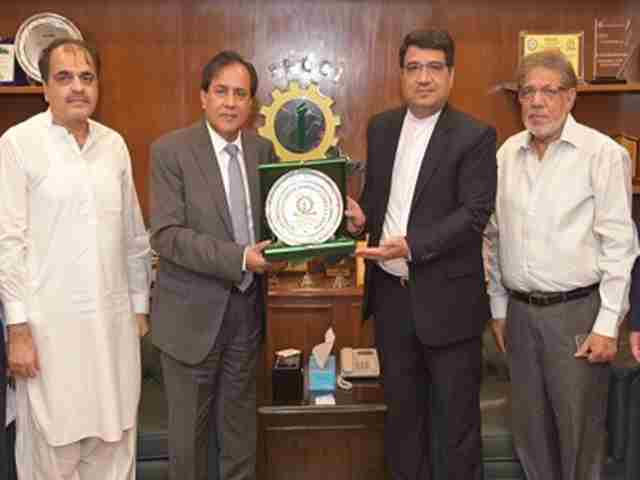KARACHI: The business community has rejected the increase in prices of petroleum products and demanded the government to immediately withdraw the decision.
Anjum Nisar, chairman of Businessmen Panel, which is ruling body of Federation of Pakistan Chambers of Commerce and Industry (FPCCI) in a statement on Saturday said the move will hit the industry hard.
He said that the burden of the surge in oil price in the international market is immediately transferred to masses by the government but the process of reduction in the prices is always very slow.
Nisar said that the economy of Pakistan, particularly the SMEs are striving to deal with the post-corona economic crunch and need to get support.
Instead of providing subsidies or waivers, it is unjust to overburden the industries with a hike in the cost of production. An increase in petroleum products costs will further weaken the economic environment which is already under threat on various fronts.
He said that there is no denying the fact that oil rates have been on the rise in the international market now, but the government instead of passing on this surge to the public can reduce the number of taxes on petroleum products as the fuel is the engine of growth.
If fuel would be heavily taxed, the entire economy would suffer unprecedentedly, he said, adding that petrol and HSD are two major products that generate most of the revenue for the government because of their massive and yet growing consumption in the country. Average petrol sales are touching 750,000 tons per month against the monthly consumption of around 800,000 tons of HSD.
The economy is already in a precarious situation, this constant back and forth will only increase volatility, when we ought to be heading for stability, he added.
He said that the cost of doing business and cost of production have shot up to the level of uncompetitiveness. The cost of borrowing was huge and capital financing has become more expensive.
The business leader said Pakistan exports cannot compete with China, Bangladesh and India where power tariffs were 7-9 cents, particularly in the post-corona economic slowdown as the country’s exports have been witnessing a major setback in present days due to the high cost of electricity, which has become a major stumbling block in industrial development and boosting exports.
He said that fuel and electricity are regarded as the lifeline of any economy and play a pivotal role in the socio-economic development of a country.
Mian Anjum Nisar said that industries need low-cost energy to bring down their cost of production, keeping their goods competitive in the international market. He said that the government, in present circumstances, would have to reduce the price of electricity along with the cut in the prices of petroleum products to bring down the cost of doing business and to promote industrial activities.
He said that due to the COVID-19 pandemic, business activities were already in decline and in this situation the government should take serious steps to cut the cost of doing business, as hike in oil rates would further enhance the cost of production, making transport more expensive.
It is to be noted that in a fortnightly review of petroleum products for the second half of September, the price of petrol has been increased by Rs5.00 per litre. The new price of petrol is Rs123.30 per litre, which was Rs118.30 per litre or a 4.2 percent increase.
Mian Anjum Nisar observed that with a view to improving the cash flow of businesses at this crucial time, the government will have to facilitate the industry through the reduction in tax ratio on all items including the oil products, besides lowering the markup rate. He said that at a time when country’s GDP ratio was very nominal amidst high cost of doing business, the industry needs maximum support and relief.
FPCCI former chief and BMP chairman said that high-speed diesel is used mostly in the transport and agriculture sectors. Therefore, any increase in its price will lead to an inflationary impact. The price of light diesel oil has also been hiked, which is used in industries.



